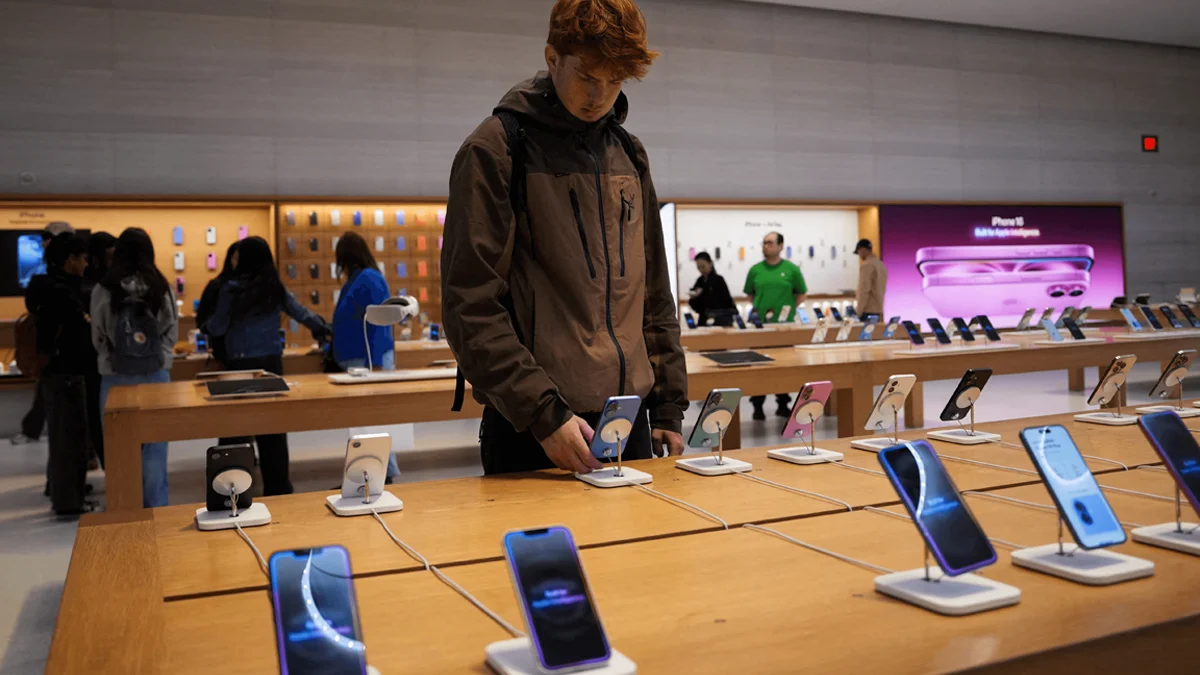Necessary Always Active
Necessary cookies are required to enable the basic features of this site, such as providing secure log-in or adjusting your consent preferences. These cookies do not store any personally identifiable data.
|
||||||
|
||||||
|
||||||
|

Apple has forecasted better-than-expected financial results for the quarter ending in September. According to Reuters, Apple’s Q3 earnings report predicted performance above Wall Street’s estimates despite CEO Tim Cook’s warning that the new U.S. tariffs could add $1.1 billion in costs. Apple beat expectations with iPhone sales rising 13% YoY, driving a record third-quarter revenue of $94 billion, above Wall Street’s $89.3 billion forecast.
Apple’s AI investment strategy has become increasingly central to the company’s long-term vision. The tech giant has been quietly but steadily investing in artificial intelligence capabilities across its product lineup, from enhanced Siri functionality to improved camera processing and battery optimization. In June, Apple signaled the strategic shift in its AI journey while introducing small and useful updates at the WWDC, 2025 event.
Apple’s AI investments are beginning to show results in terms of user experience improvements and new feature capabilities. Apple said its spending on equipment and infrastructure has gone up this year because of AI investments. But it also explained that it still uses a mix of its spending and outside partners, so those costs won’t rise too quickly.
Apple is still expecting growth this quarter. CFO Kevan Parekh said revenue should rise in the “mid to high single digits,” which would beat analysts’ forecast of 3.27% growth to $98.04 billion, according to LSEG.
Tim Cook’s AI initiatives have positioned Apple to compete effectively in the artificial intelligence space while maintaining the company’s focus on user privacy and security. Cook has emphasized that Apple’s approach to AI prioritizes on-device processing and user control over personal data.
On Thursday, the company signaled towards getting more serious towards its AI development. Tim Cook stated, “We see AI as one of the most profound technologies of our lifetime. We are embedding it across our devices and platforms and across the company. We are also significantly growing our investments,” He added on the Q3 2025 earnings call with investors. “Apple has always been about taking the most advanced technologies and making them easy to use and accessible for everyone, and that’s at the heart of our AI strategy.”
Under Cook’s leadership, Apple has been integrating AI capabilities into existing products rather than creating standalone AI products. This strategy allows the company to enhance user experiences without dramatically changing how people interact with Apple devices.
The CEO’s vision for AI includes making technology more accessible and intuitive for everyday users, rather than focusing solely on cutting-edge capabilities that might appeal primarily to tech enthusiasts. Apple is also planning to use Anthropic or Claude to power Siri rather than relying on internal technology.
iPhone’s revenue growth continues to be a significant contributor to Apple’s financial performance. Despite market saturation concerns, the iPhone lineup has maintained strong sales figures, particularly in key international markets where smartphone adoption continues to expand.
The company’s ability to command premium pricing for iPhone models has helped maintain healthy profit margins even as component costs have increased. New features and regular software updates continue to drive upgrade cycles among existing iPhone users.
The tariff impact on Apple of $1.1 billion represents a substantial cost that the company must manage carefully. These tariff-related expenses stem from ongoing trade tensions and policy changes that affect how Apple imports components and finished products.
Despite these additional costs, Apple has demonstrated its ability to maintain profitability through operational efficiency improvements and strategic pricing adjustments.